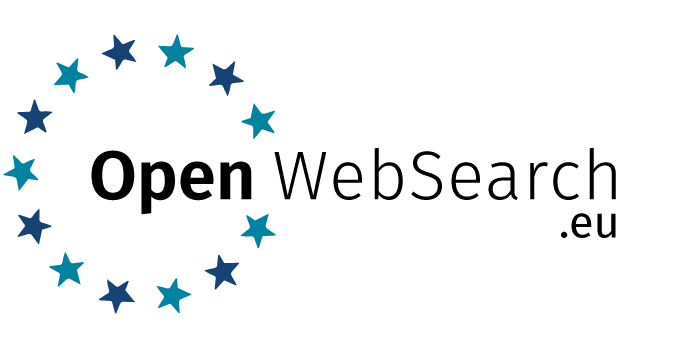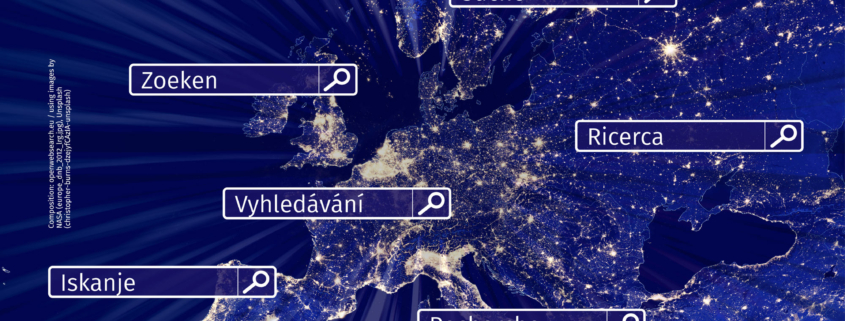Promoting Europe’s Independence in Web Search: 14 European Research Centers join forces | Media Release
For the OpenWebSearch.EU project, 14 renowned European research and computer centers have joined forces to develop an open European infrastructure for web search. The project will be contributing to Europe’s digital sovereignty as well as promoting an open human-centered search engine market. The European Commission has now approved the project’s Horizon Europe funding of 8,5 million euros.
„Free, open and unbiased access to information – we have lost these core principles in web search and urgently need to restore them. This is why we will create an open European infrastructure for internet search, based on European values and jurisdiction.” says Michael Granitzer of University Passau and Open Search Foundation, project coordinator of OpenWebSearch.EU.
Over the next three years the researchers will develop the core of a European Open Web Index (OWI) as a basis for a new Internet Search in Europe. In addition, the project will set the foundation for an open and extensible European open Web Search and Analysis Infrastructure (OWSAI), based on Europe’s values, principles, legislation and standards.
The project has its origins in concerns over the imbalance of the search engine market. Despite being a backbone of our digital economy, web search is dominated and limited by a few gatekeepers like Google, Microsoft, Baidu or Yandex. Thus, information as public good, with free, unbiased and transparent access is not under public control anymore. This imbalance endangers democracy and limits the innovative potential of Europe’s research landscape and economy.
OpenWebSearch.EU’s strong multi-disciplinary consortium of 14 European partners is convinced that “the open web search infrastructure will not only contribute to Europe’s sovereignty for navigating and searching the web. It will benefit us all as citizens. Based on our own preferences, we will finally have a real choice again when choosing search engines.”
OpenWebSearch.EU is the first project the EU has funded to get tomorrow’s web search up and running. It will kick-off in September 2022. The 14 partner institutions will initially cooperate over a time-frame of three years. The project has received funding of 8,5 million euros from the European Union’s Horizon research and innovation programme under grant agreement no. 101070014.
Contact:
ows-media@opensearchfoundation.org
www.openwebsearch.eu
List of project partners
1. University of Passau, Germany (uni-passau.de)
2. Leibniz Supercomputing Centre of Bavarian Academy of Sciences and Humanities, Germany (lrz.de)
3. Stichting Radboud Universiteit, Netherlands (ru.nl)
4. Leipzig University, Germany (uni-leipzig.de)
5. Graz University of Technology, Austria (tugraz.at)
6. Deutsches Zentrum für Luft- und Raumfahrt, Germany (dlr.de)
7. VSB – Technical University of Ostrava, IT4Innovations, Czech Republic (www.vsb.cz)
8. European Organization for Nuclear Research – CERN, Switzerland (home.cern)
9. Open Search Foundation, Germany (opensearchfoundation.org)
10. A1 Slovenija, telekomunikacijske storitve, d. d., Slovenia (a1.si)
11. CSC-Tieteen Tietotekniikan Keskus Oy, Finland (csc.fi)
12. Stichting Nlnet, Netherlands (nlnet.nl)
13. Bauhaus-Universität Weimar, Germany (uni-weimar.de)
14. SUMA-EV – Association for Free Access to Knowledge, Germany (suma-ev.de)
About Horizon Europe
Horizon Europe is the EU’s key funding programme for research and innovation. It aims to build a knowledge- and innovation-based society and a competitive economy while contributing to sustainable development. The programme contributes to the implementation of the European Commission’s guidelines.




